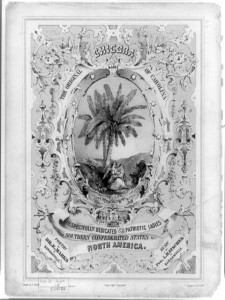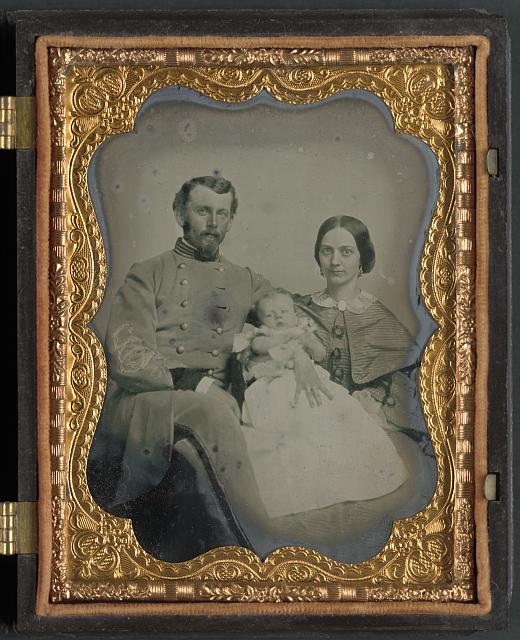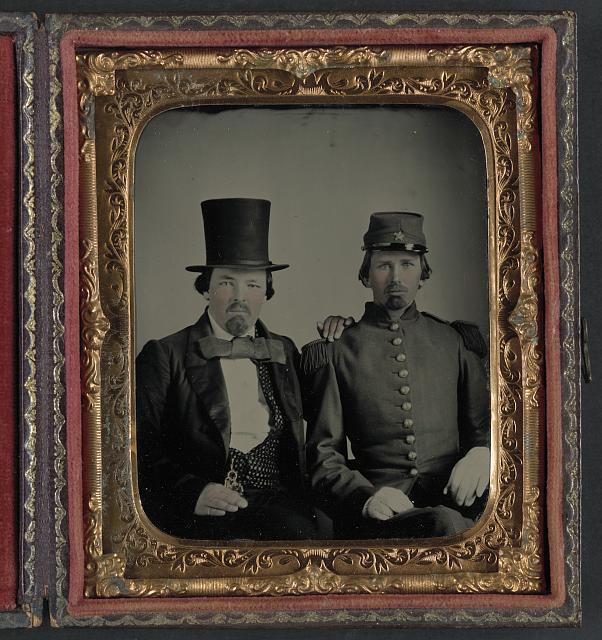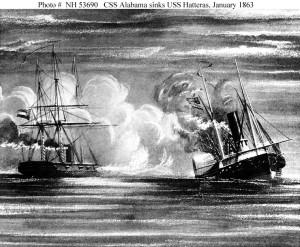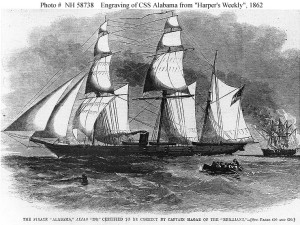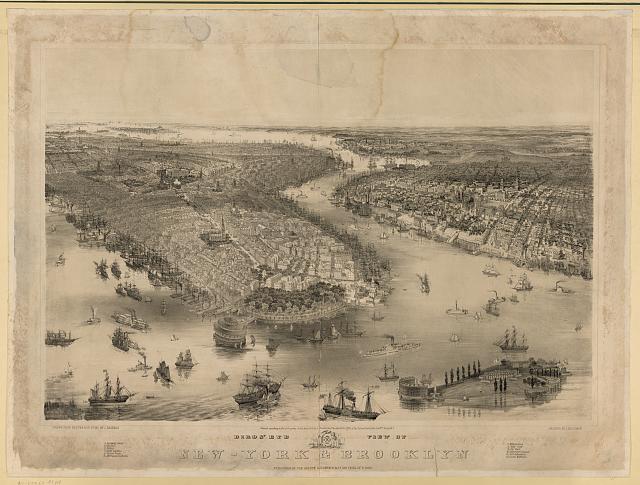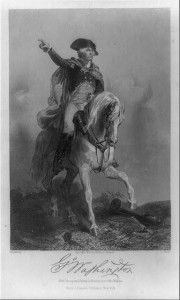
American Joshua
150 years ago yesterday President Lincoln thought it propitious that Washington’s Birthday coincided with the Christian sabbath. This article encourages Gothamites to make it a long weekend – despite the snowstorm.
From The New-York Times February 23, 1863:
LOCAL INTELLIGENCE.; WASHINGTON’S BIRTHDAY. HOW IT WAS CELEBRATED What will be Done To-Day and To-Night.
The storm came just in time to add its blustering hurrah to the more quiet and reverential observance of the birthday of the remarkable man who, sixty years ago, stood first in war, in peace and in the hearts of his countrymen, and whose memory to-day ranks side by side with that of the great captains, benefactors and rulers of the world.
In various ways, consistent with the sanctity of the day, various religious organizations gave thanks for the beneficial example left by the “Father of his Country,” for the guidance of the youth and other citizens of the Republic.
Rev. Dr. S.H. COX spoke eloquently and patriotically, at the rooms of the New-England Relief Association, and made the heart of many a listener thrill with country-love, and burn with holiest desire for the prosperity and successful issue of the nation.
Rev. NEWTON HESTON, at the State-street Congregational Church, demonstrated the fact that “WASHINGTON was the American Joshua.”
Rev. PETER STRYKER preached a sermon before the New-York Young Men’s Christian Association on “Christian Manhood,” for abundant illustrations of which he referred them to the life of the great hero Captain who fought naked in the battles of his time with a pure heart, a clear head and a strong hand.
Rev. L.J. FLETCHER delivered, at the Fourth Universalist Church, a sermon appropriate to the day, entitled, “WASHINGTON, the Christian Patriot,” and other ministers, of various denominations, deemed it a fitting hour in which to inculcate the doctrines of truth, honor and patriotism, as being eminently the desiderata of our day, as they were undoubtedly leading characteristics of him in whose honor the national flag was flung out from every mast-head and from every dome.
The storm king’s fiercest blast and driving storm could not prevent the assemblage of a goodly company at Cooper Institute, yesterday afternoon, on the occasion of the celebration of the 131st Aniversary of WASHINGTON’s birthday by the
ORDER OF UNITED AMERICANS.
A large volunteer chorus, from the New-York Harmonic Society, was present, and, under the direction of J.C. DEVOY, Esq., agreeably interspersed the exercises with patriotic airs, M. CARRINGTON, Esq., President of the Society, presiding at the organ. The exercises were commenced by the Chairman of the Committee of Arrangements, NAPOLEON B. MOUNTFORT.
After prayer by Rev. Dr. SKINNER, and the singing of “Our Country’s Flag” by the choir, the Chairman introduced Rev. SIDNEY A. COREY, who delivered the address of the day.
To-day
THE OFFICIAL CELEBRATION
will take place. That is, it is advertised, and so far as the snow-drifts will permit, we presume, the advertisement will be verified. A huge Committee, embracing ten of our City Officials, have been authorized to expend in gunpowder, dainties and fancy pyrotechnics; the modest sum of $5,000, and the strong probabilities are that the money will be spent.
First of all, at sunrise, a salute of 100 guns will be fired by sundry guns planted in Madison Square. After which Mr. JAMES E. AYLIFFE, the celebrated chimer, will ring out from the tower of Old Trinity the following programme:
No. 1. — Ringing the changes on eight bells.
No. 2. — Hail Columbia.
No. 3. — Yankee Doodle.
No. 4. — Home, Sweet Home.
No. 5. — Blue Bells of Scotland.
No. 6. — Rondo, with variations, on major and minor keys, composed by GEO. F. BRISTOW.
No. 7. — Star Spangled Banner.
No. 8. — Airs from Child of the Regiment.
No. 9. — Columbia, the Gem of the Ocean.
No. 10. — Last Rose of Summer.
No. 11. — Evening Bells.
No. 12. — Old Dog Tray.
No. 13. — Hail Columbia.
No. 14. — Yankee Doodle.
… A GRAND DISPLAY OF FIREWORKS
will be made at 7 o’clock P.M., in front of the City Hall, and at Union Square.
The exhibition in the Park will represent a colossal equestrian statue of Gen. WASHINGTON, seated on his famous charger, with chapeau in his right hand, extended forward, bidding adieu to the army, with the motto “Ducit amor patriae,” encircled in a segment of a circle overhead — on the base, the words, “The Union must and shall be preserved.” The sides of the statue are represented by the mammoth figures of “Liberty and Justice.” The whole tableau, covering an area of over 10,000 feet, is surrounded by 34 stars of the Union. It will end with a gorgeous and soul-stirring display of colored fires, shells, flights of rockets, bengolas and colored batteries. Previous to the firing of the above piece, the sky will be for one hour continually illuminated with rockets, shells and colored fires.
At Union-square, there will be a temple with the standing figure of WASHINGTON, sword by his side and his right hand extended and pointing forward; above him and inside the Temple soars an eagle; under all is the motto “Union Forever.” The remainder of the display will be similar to the one in the Park, commencing and ending alike with colored fires, shells, batteries, rockets, &c.
After all this will be the
CIVIC BANQUET.
at the St. Nicholas Hotel. To this none but the titled and the local great will be admitted, and [h]oi polloi must be content with the reporter’s account of the boned turkey, the fruits glace, the gastronomic what-d’ye-call-ems and the soul-stirring responses to patriotic toasts.
The Produce Exchange has set the good example of announcing its non-opening for the day, and we hope other like institutions will follow it.
Every ship-master, hotel proprietor, official or other man who has a flag and a flag-staff, should unfurl the banner of his country to-day, and make the City glorious by the resplendent display of the Stars and Stripes.
BANQUET AT THE ASTOR HOUSE.
The Northwoods Walton Club will give a banquet at the Astor House to-night.
WASHINGTON’S BIRTHDAY IN JERSEY CITY.
WASHINGTON’s Birthday will be duly observed in Jersey City to-day by the closing of the public offices, banks and public schools.
In the evening, Rev. A.A. WILLITS will deliver his lecture, “The Sword of Washington,” at the Third Reformed Dutch Church, in aid of the families of volunteers.
The Jersey City Sangerbund will give a fancy dress and masquerade ball at Cooper Hall.
The storm must have been a nor’easter – From the Richmond Daily Dispatch February 23, 1863:
Snow.
–A snow storm set in about 8 o’clock on Saturday evening, and continued with considerable violence throughout the night. The ground was covered to the depth of five or six inches, and sleighs were on the streets yesterday for the first time this season.
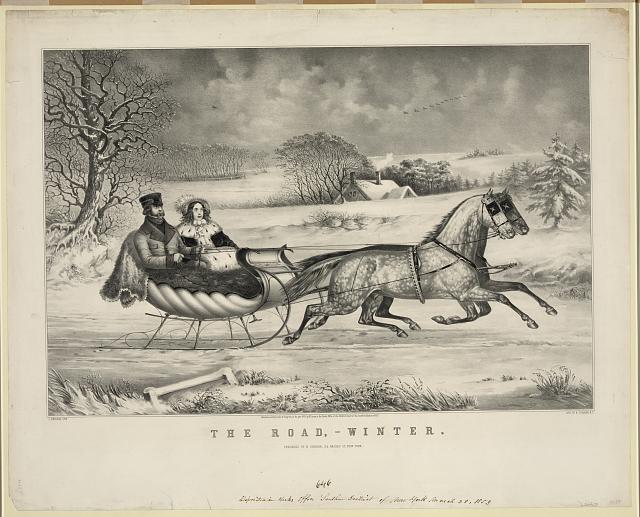
Now appearing in Richmond
In 1861 New York Republicans celebrated Washington’s Birthday with many toasts and a miniature Fort Sumter firing a 34 gun salute. The model fort sported a United States flag. That seems a bit like ancient history – the rebel flag’s been flying over the real fort going on two years now.
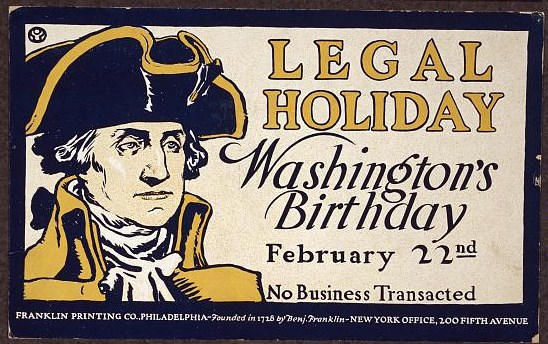
Why didn’t I think of that?

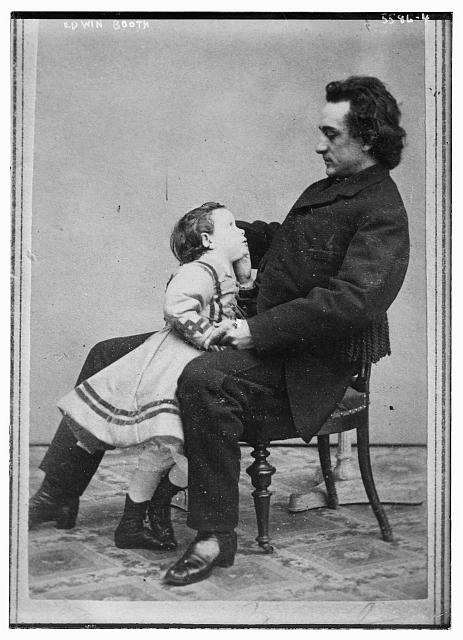
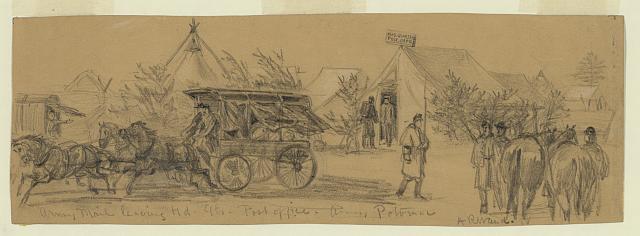

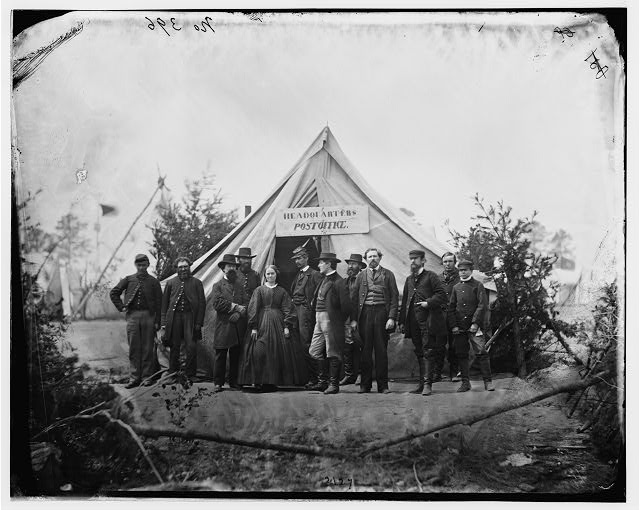
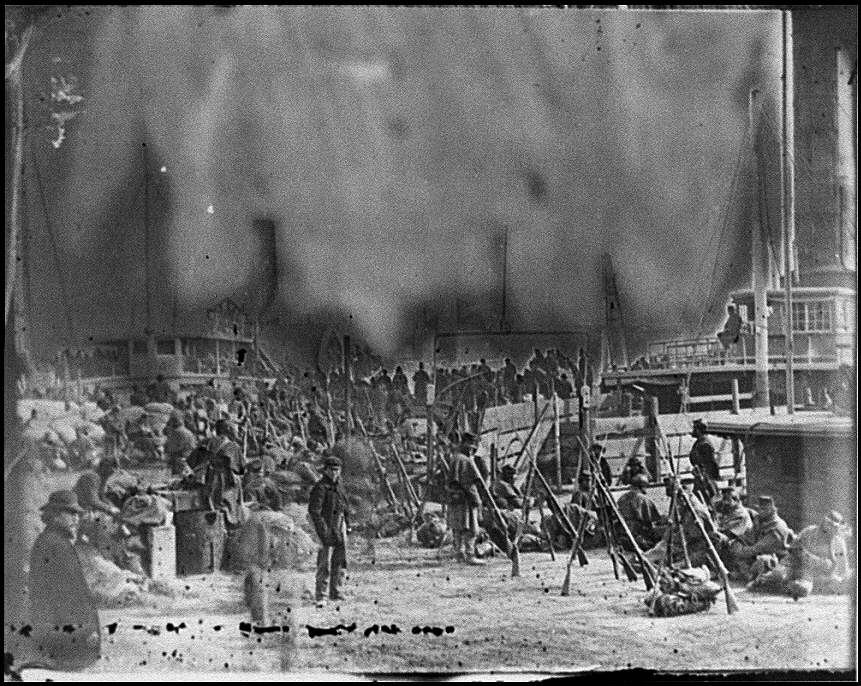
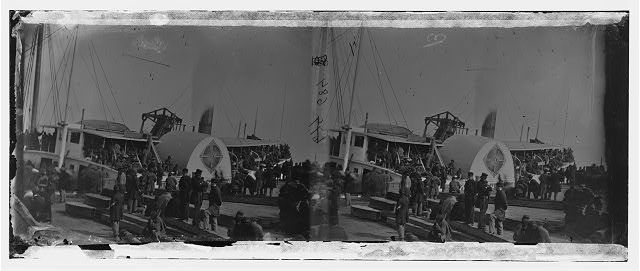
![Abandoned camp of 9th Army Corps near Falmouth, Va., February, 1863 (photographed 1863, [printed between 1880 and 1889]; LOC: LC-DIG-ppmsca-33102)](https://www.bluegrayreview.com/wp-content/uploads/2013/02/33102r.jpg)
![Abandoned camp of 9th Army Corps near Falmouth, Va., February, 1863 (photographed 1863, [printed between 1880 and 1889]; LOC: LC-DIG-ppmsca-33103)](https://www.bluegrayreview.com/wp-content/uploads/2013/02/33103r.jpg)
